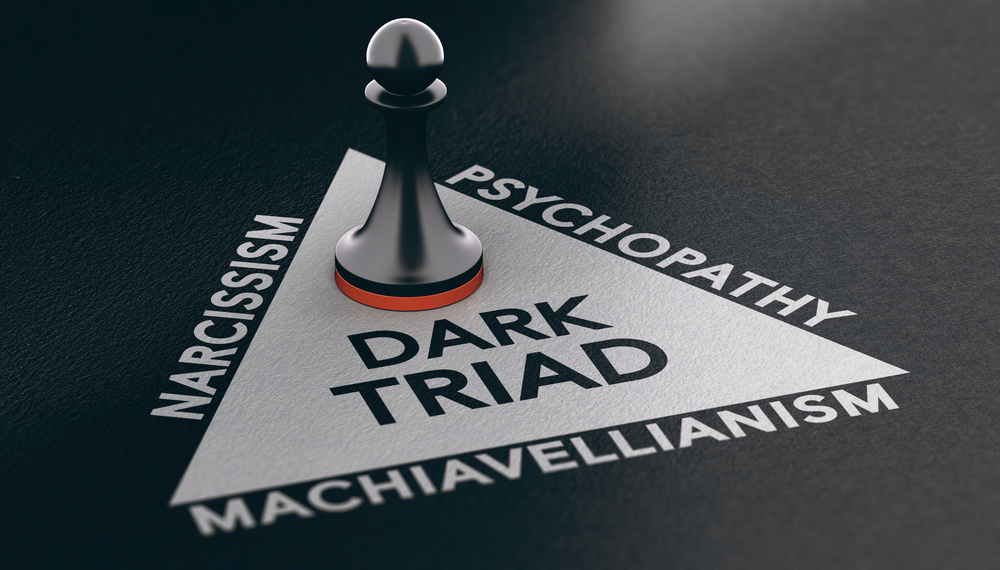The negative sides of human behavior
We can all witness positive human behaviors like helpfulness, kindness, honesty, and so on on a daily basis. Virtually every human being has been given the inclination for this kind of behavior, both biologically and through education and culture in a broader sense. But, as we know, sometimes people are also capable of negative and downright bad behavior. Some researchers have mapped out what kinds of negative and bad behavior there are.
The Dark Triad
Previous research into the negative sides of human behavior has mainly focused on the so-called Dark Triad. This concerns the following three partly overlapping basic traits: narcissism, psychopathy and machiavellianism. Research has shown a correlation between these traits and causing social problems, committing crimes and causing problems in organizations (especially when these individuals hold leadership positions).
The D-factor and 9 dark traits
A number of researchers from Germany and Denmark (Moshagen et al., 2018) proposed that there is a D-factor underlying malicious behavior. By this D-factor they mean the tendency to maximize one's own utility at the expense of the utility of others. They conducted four studies to test this D-factor measuring the following 9 'dark' traits described earlier in the research literature (2, 4 and 6 are the aforementioned Dark Triad):
- Egoism. The excessive concern with one's own pleasure or advantage at the expense of community well-being.
- Machiavellianism. Manipulativeness, callous affect and strategic-calculating orientation.
- Moral Disengagement. A generalized cognitive orientation to the world that differentiates individuals' thinking in a way that powerfully affects unethical behavior.
- Narcissism. An all-consuming motive for ego reinforcement.
- Psychological Entitlement. A stable and pervasive sense that one deserves more and is entitled to more than others.
- Psychopathy. Deficits in affect, callousness, self-control and impulsivity.
- Sadism. Intentionally inflicting physical, sexual or psychological pain or suffering on others in order to assert power and dominance or for pleasure and enjoyment.
- Self-Interest. The pursuit of gains in socially valued domains, including material goods, social status, recognition, academic or occupational achievement and happiness.
- Spitefulness. A preference that would harm another but that would also entail harm to oneself. This harm could be social, financial, physical or an inconvenience.
The study confirmed that the D-factor underpinned all of these dark properties.
Discussion
Here are some of my thoughts on this research:
- Fascination: The dark side of human behavior fascinates us. We can see this, among other things, in the eagerness with which we watch crime series, follow criminal trials and follow the reporting about people like Donald Trump and his associates. This fascination with the bad in people is probably related to the negativity bias.
- Usefulness: Focusing on the negative sides of human behavior can be helpful. Knowing what negative, harmful behavior looks like may help protect us from it. For example, let's not elect lying individuals who are constantly glorifying themselves as leaders (example).
- Progress-focused: how progress-focused is it to also look at these kinds of negative descriptions? Isn't a progress-focus more about what we do want than about what we don't want? My idea: a progress-focus is above all about the meaningful progress we are striving for. But this does not mean that there is a taboo on discussing what is undesirable. When achieving progress, we do not only focus on strengthening the plus we are looking for, but sometimes (perhaps often) too on the minus that we want to limit or transform into a plus. Recognizing, mitigating and reversing the types of negative behaviors described above can be extremely important in preventing harm to others.
- Reticent with labels: While it is certainly true that certain individuals have rather ingrained bad habits and tendencies, it is probably wise to be reluctant to put labels on people. It can be tempting to say things like, "He's a typical narcissist!" but this could evoke a fixed mindset and thus hinder progress. Who knows, we may come a long way in bending and limiting negative behavior through techniques such as progress-focused steering, saying no and the logical consequence approach.

Comments